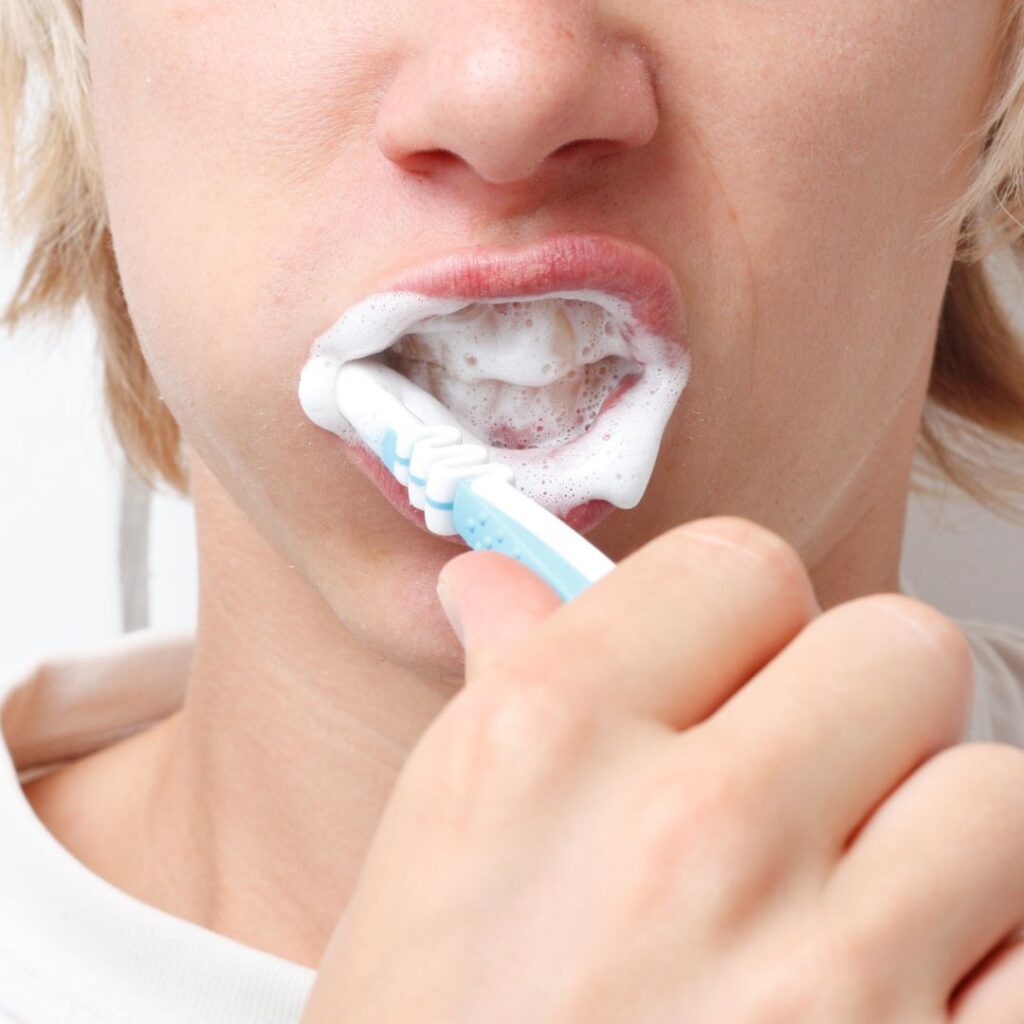Are You Brushing Your Teeth Too Much?

We all have that friend who takes meticulous care of their teeth, consistently flossing and brushing after every snack and meal. But as it turns out, over-brushing your teeth isn’t good for your dental health. Brushing your teeth too much can wear down your enamel and cause receding gums, Tasios said. This is called toothbrush abrasion, which can happen when you brush your teeth too often or too hard.
How Often Should You Brush Your Teeth?
You should always brush your teeth at least twice a day, in the morning and at night, according to Sean Kutlay, DDS, a dentist based in California. But he and his colleagues brush three times daily (once after each meal), which is the optimal number of times. But Tasios said that dentists realize this is unrealistic for many people who are not at home at lunchtime, so twice should be the absolute minimum. Brushing fewer than twice a day can lead to bacteria build-up, cavities, and gum disease. According to some research, under-brushing can impact more than just your oral health. One recent study found that skipping nightly toothbrushing may heighten heart disease risk, while other studies have suggested it could lead to dementia, arthritis, and pancreatic cancer.
How Can You Brush Your Teeth Properly?
The best way to brush your teeth, Kutlay said, is by creating a circular motion with a soft-bristled toothbrush, making sure to brush the gum line and all tooth surfaces. “To get rid of any food bits that might be stuck between the teeth, flossing is also crucial after cleaning,” he said. “It’s also crucial to change your toothbrush every three to four months and to brush gently in order to protect your gums.” Tasios added that it’s important to use fluoride toothpaste and brush for two minutes, but some of her patients often rush through the process. “They are in a hurry, scrub their front bottom and top teeth, give a quick once over the top to the back teeth, and off they go,” she said. But taking the time to brush each tooth thoroughly and carefully, she said, is the best prevention against cavities and tooth decay.